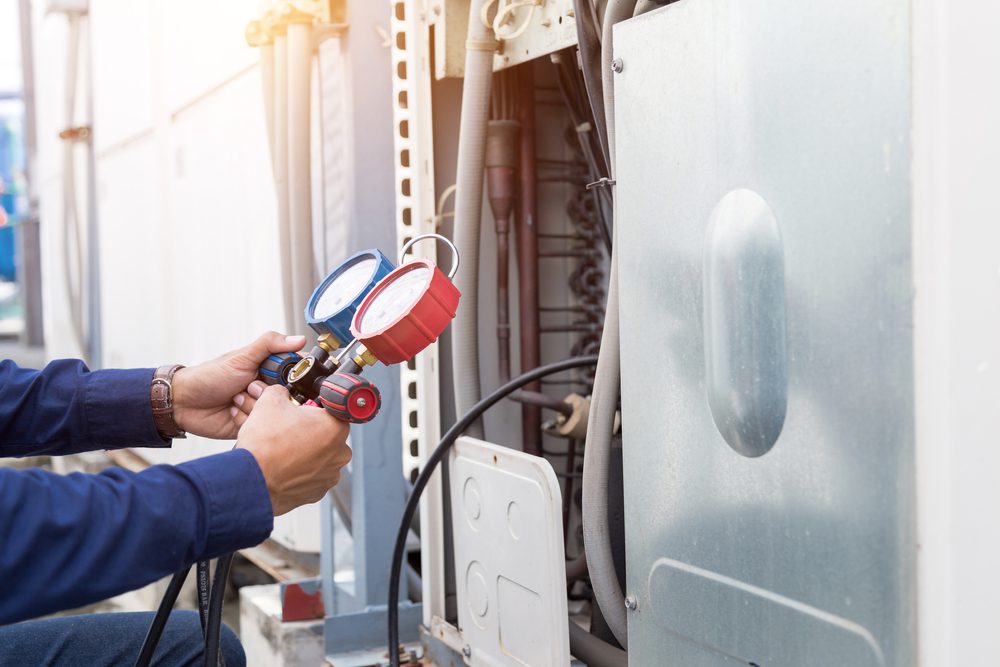Navigating Cooling And Heating Upgrades: Modern Solutions for Boosted Convenience and Power Cost Savings
In today's swiftly advancing landscape of home modern technology, browsing HVAC upgrades calls for a calculated strategy to harness both improved convenience and considerable energy cost savings. The introduction of wise thermostats and zoned systems has transformed temperature control, offering tailored remedies that decrease power waste. As property owners consider these improvements, comprehending the duty of energy-efficient HVAC devices outfitted with innovative attributes like variable rate compressors comes to be critical. Moreover, the assimilation of lasting techniques offers possibilities that expand beyond plain convenience. Just how can these modern-day remedies be successfully leveraged to achieve an unified balance between performance and environmental duty?
Smart Thermostat Innovations
In the rapidly progressing landscape of home automation, clever thermostat advancements have arised as a cornerstone of modern-day HVAC systems. This results in significant energy savings and improved convenience, aligning with the enhancing need for sustainable living solutions.
Among one of the most significant functions of smart thermostats is their capacity to adapt and discover to customer preferences and regimens. By examining actions and patterns, these tools automatically readjust settings to guarantee optimal comfort while decreasing energy intake. Additionally, remote access using smartphone applications permits users to keep track of and regulate their heating and cooling systems from anywhere, giving flexibility and peace of mind.
Assimilation with other clever home gadgets and platforms better amplifies the abilities of clever thermostats. Compatibility with voice aides like Amazon Alexa or Google Assistant allows hands-free operation, making it much easier than ever to keep wanted indoor climates. As technology proceeds to breakthrough, wise thermostats are set to play a progressively critical role in producing energy-efficient and comfortable living environments.
Zoned Cooling And Heating
While wise thermostats change private temperature control, zoned heating & cooling systems offer a more customized strategy to handling interior climates by dividing a home into distinctive areas, each with its very own thermostat. This division permits home owners to personalize the temperature level in each zone according to certain demands and preferences, enhancing both convenience and energy performance. In a zoned system, dampers within the ductwork can close or open to guide air flow precisely where required.
By dealing with these variants, home owners can reduce energy waste and make certain constant comfort throughout the home. A zoned system can adjust as necessary, decreasing unnecessary energy intake.
Moreover, zoned heating and cooling systems can result in lower utility expenses. By just conditioning occupied spaces, these systems lessen power use, therefore adding to cost savings in time. In addition, they use adaptability, allowing various relative to set their preferred temperature levels in their particular zones. This personalization boosts overall contentment and effectiveness without endangering on convenience.
Energy-Efficient A/c Devices
Current improvements in technology have brought about the development of highly energy-efficient heating and cooling devices that considerably decrease energy consumption while keeping ideal interior comfort. These innovative systems utilize innovative attributes such as variable rate compressors, wise thermostats, and progressed filtering innovations to boost efficiency and efficiency. Variable speed compressors adjust their operation to the precise heating or cooling demand, minimizing power waste and giving regular interior temperatures.
Energy-efficient cooling and heating devices additionally incorporate wise thermostats, which allow users to program and from another location manage their systems via mobile phones. These thermostats discover home patterns to enhance heating and cooling down routines, thus decreasing unneeded power use. Furthermore, advanced purification systems enhance interior air quality while keeping power performance, getting rid of particulates without overburdening the system.
The application of energy-efficient heating and cooling devices can cause substantial price financial savings on energy bills and a reduction in carbon impact, aligning with the expanding consumer demand for green services. Numerous contemporary units certify for federal government incentives and discounts, making the investment in energy-efficient technology much more easily accessible. Therefore, updating to an energy-efficient HVAC unit is a prudent choice for both industrial and residential residential or commercial properties seeking long-term comfort and sustainability.
Lasting A/c Practices

Moreover, regular upkeep plays a crucial role in sustaining a/c performance. Regular assessments and timely fixings avoid power loss because of worn-out components or system breakdowns. Employing environmentally friendly cooling agents with reduced global warming capacity (GWP) is another method obtaining traction, as traditional cooling agents are phased out due to their environmental influence.
Furthermore, applying warm recovery systems can improve sustainability by recording waste warm and repurposing it for other home heating needs. This method not just saves energy however additionally reduces functional costs. Ultimately, incorporating sustainable power sources, such as solar panels, can additionally lower reliance on non-renewable energy, adding to an extra sustainable heating and cooling operation and general power strategy.

Future A/c Patterns

One substantial trend is the integration of artificial knowledge (AI) and the Net of Points (IoT) into Heating and cooling systems. These technologies allow predictive maintenance and real-time performance monitoring, allowing for maximized power use and minimized functional costs.
One more trend is the growing emphasis on decarbonization and renewable power assimilation. As federal governments globally established ambitious carbon reduction targets, a/c systems are significantly being developed to incorporate renewable resource click now sources such as geothermal and solar. This shift not only lowers carbon impacts but also lines up with broader sustainability goals.
In addition, the emphasis on indoor air top quality (IAQ) is increasing. Advanced filtration systems and air purifiers geared up with HEPA and UV-C modern technology are becoming criterion in brand-new HVAC installations, specifically in business spaces, to ensure much healthier settings.
Verdict
Embracing contemporary A/c solutions is essential hop over to here for achieving ideal comfort and power cost savings in property spaces. Innovations in smart thermostats and zoned heating and air conditioning systems enable exact temperature control, minimizing power waste.

As federal governments globally established ambitious carbon decrease targets, HVAC systems are increasingly being created to include eco-friendly energy sources such as solar and geothermal. - Brownwood TX HVAC Contractor